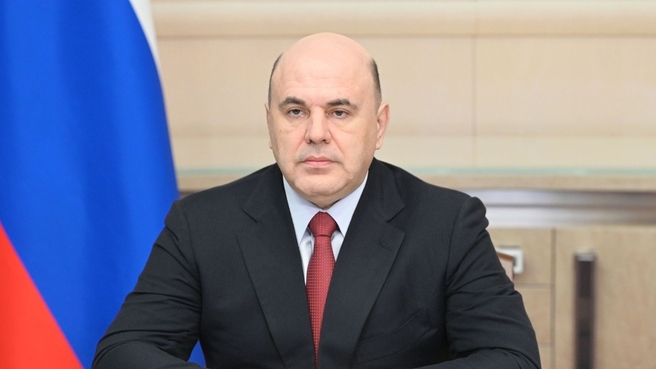Agenda: restricting scheduled business inspections until 2030, providing additional benefits to those awarded the badge Resident of Besieged Stalingrad, supporting rural health workers in the new regions, exempting aviation servicing companies from two taxes, and creating a digital system for recording breeding animals.
Mikhail Mishustin’s opening remarks:
Good afternoon, colleagues.
Before we move on to the main agenda, I want to say a few words about a document we adopted.
At the instruction of the President, the Government continues to lower the administrative burden on economic entities. In the next eight years, scheduled inspections will be carried out only at those companies that have extremely high- and high-risk facilities. A relevant resolution has been signed.
Also, at high-risk educational institutions, there will be preventive visits instead of scheduled inspections during the same period. If such visits reveal violations, orders to rectify those violations may be issued.
These decisions are part of the oversight reform that the Government is implementing. They will allow for maintaining the general trend of improving the business climate in our country.
Now to the agenda. Let us discuss another important issue.
This year, we mark a very important event in Russian history, which reminds us of the unbelievable courage and spirit of our people. Eighty years have passed since our victory in the Battle of Stalingrad. It was a tremendous battle when the Soviet troops defeated the Nazi forces.
Citizens who were in the city at that time were awarded the badge Resident of Besieged Stalingrad.
At the instruction of the President, the Government has drafted legislative amendments so that these people can receive the same benefits as Great Patriotic War veterans and relevant social protection guarantees. They include the right to receive two pensions simultaneously, monthly allowances and an opportunity to improve their living conditions, if necessary, using federal budget funds.
These people deserve the utmost respect. They have survived the Great Patriotic War, the most cruel and violent war in world history. We must give them the attention they deserve.
Next item. The Government continues to support health workers in rural areas, small towns and remote communities, above all, as part of the Village Doctor and Village Paramedic programmes. Now we will expand them to our new regions.
The President has said on many occasions that high-quality medical care must be accessible in all populated areas without exception. It is important to do everything necessary to make that happen.
We will allocate nearly 190 million roubles to the new regions for relocation incentives, lump-sum compensations as part of the programmes. Participating doctors get one million roubles each when they move, and paramedics, midwives and nurses get 500,000 roubles each. For those who will work in remote and hard-to-reach areas, such payments increase by half to 1.5 million and 750,000 roubles respectively.
This will help attract at least 250 doctors and middle-ranking medical personnel to healthcare facilities in the Donetsk and Lugansk people’s republics, as well as the Zaporozhye and Kherson regions.
Today, we will also consider a bill that would help reduce the costs of servicing companies in the aviation industry. We will exempt them from paying two taxes. This is about the provision of services for replacing engines and other components of civil aircraft. Such operations are now subject to a zero rate of value-added tax. Also, the cost of spare parts and components will not be included in the income and expenditure calculations for income tax purposes.
It is often too expensive and time-consuming to send components for repair and return them to operation. Under tax law, such a service is treated as two sales transactions, since during a replacement, the servicing company provides the air carrier with working parts and receives the out-of-commission parts, which it then returns to operation after repair.
Information on such a transaction should be included in the tax base. In order to determine it, the cost of the repaired component must be calculated through an independent expert assessment.
This will help maintain the airworthiness of the civil aircraft fleet and maintain the transport accessibility and connectivity of Russian regions.
Today we will also discuss issues related to agriculture. A draft law to create an information and analytical system has been developed. This platform will be used for registering breeding animals, as well as for keeping a count of farms that participate in such work. It will be possible to access this database through the single public services portal, too. Moreover, access will be free and provided online for all users – both for the authorities and agribusiness, including individual entrepreneurs, as well as for scientists working in this field.
Through this database, breeding farms will provide information about their animals, the acquisition of which is most beneficial for agricultural producers. And farmers will be able to select the most productive breeds.
The President highlighted the need for domestic science-based solutions in the field of agriculture and genetics. And this new information platform is highly in-demand for applied research needed by our farmers. It will be a great help for Russian producers of meat, milk, aquaculture, honey and food, and will help increase the competitiveness of our agricultural industry.













